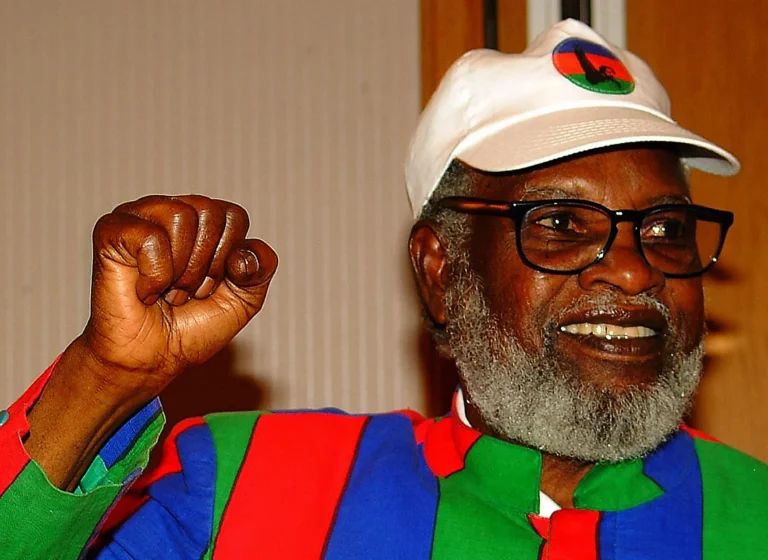Tributes have been pouring in for Namibia’s founding president who died in Windhoek over the weekend at the ripe age of 95.
From Nigeria, Kenya, The Gambia to the rest of the world, words have been expressing just how pivotal Sam Nujoma had been in shaping not only his country but the entire Southern Africa region.
As the Namibian government declare several days of national mourning, the governing African National Congress in neighbouring South Africa brought its flags at half-mast to mourn a man with whom they share identical political philosophy.
Members of his South West African People’s Organisation (SWAPO) which he helped found on 19th April 1960 have described Nujoma as the main driving force of the struggle for independence which swept across Namibia. He is widely seen as the tip of the spear of Namibia’s long revolutionary war of independence from apartheid South Africa. He became country’s founding president in 1990 after the 25-year war of independence ended.
Namibia’s fourth President Dr Nangolo Mbumba in a tribute said: ”Our Founding Father lived a long and consequential life during which he exceptionally served the people of his beloved country. Our Founding Father heroically marshalled the Namibian people during the darkest hours of our liberation struggle until the attainment of freedom and independence on the 21st of March 1990”.
His struggle to free Namibia from the yoke of colonial apartheid came at great personal sacrifices. Daniel Nujma was arrested and jailed in Pretoria for just being Nujoma’s father and died of tuberculosis while in prison in 1968. This was at a time when Nujoma was busy coordinating the revolutionary war effort with help from friendly states in the region, including Zambia and Tanzania.
Nujma’s eldest son Utoni Nujoma who would eventually serve as minister in subsequent post-Nujoma government also played a role in Namibia’s struggle to free itself from colonial domination and end racial discrimination which was one of its most egregious hallmarks.
After years of physical separation he would later be joined by his wife in exile. The authorities in Namibia had accused Nujoma’s wife Kovambo Nujoma of planning to join her husband in exile for ‘subversive intents’ and raided her home. Later account of her harassment suggested that the apartheid regime tried unsuccessfully to convince her to kill her own husband.
Nujoma would go on to win three terms in office through democratic elections and Kovambo would be first lady during this 14-year period before retiring in 2005. After the presidency, he still played an active role in Namibian politics until being incapacitated by advanced age.
His demise signals the end of one of the last of a generation of African liberation leaders who fought with gallantry to reshape a region which was lagging behind other African countries in the race for political independence which began in the late 1950s and ended in the early 1990s.
Thus Nujoma is in the same league as the late Nelson Mandela, Zimbabwean President Robert Mugabe, Zambia’s Kenneth Kaunda, and Mozambique’s Samora Machel, giant trees that have all fallen.
Paying tribute to him the South African parliament described former President Nujoma as ”an uncompromising African nationalist and a seasoned leader who firmly believed that Namibia’s freedom was meaningless if her neighbours were not free”.
In their joint condolence to the Namibian people, the Speaker of the South African National Assembly, Ms Thoko Didiza, and the Chairperson of the National Council of Provinces, Ms Refilwe Mtshweni-Tsipane said throughout his life, Nujoma ”was an activist for freedom and a champion of social justice and a fair new world order”..
They added: “We will never forget his immense contributions to a united Africa. We will forever be indebted to the sacrifices of such a legendary leader whose greatness continues to inspire Africa and the world.”
WN/as/APA


